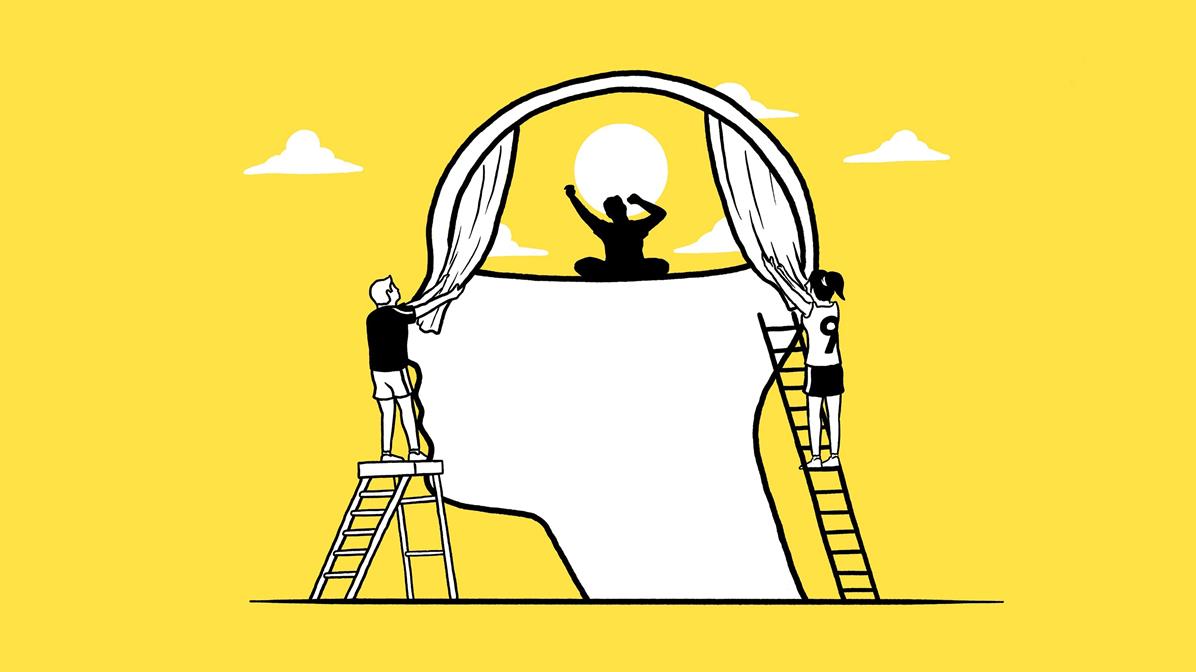IOC expands mental health support for athletes

10 Oct 2022 – As World Mental Health Day on 10 October 2022 highlights the importance of raising awareness of mental health issues and the need to look out for one another, the International Olympic Committee (IOC) is continuing to expand its range of services developed to support athletes in managing their mental health by launching a new online course for athletes, focused on the importance of sleep and its impact on performance.
The course is available on Athlete365, the IOC’s platform that supports more than 130,000 elite athletes and entourage members on and off the field of play through a range of advice, services and tools, with a particular focus on well-being.
Athlete mental health is a key priority for the IOC. A survey conducted in 2022 among the Athlete365 community revealed that one-in-five elite athletes had suffered poor mental health in the past year.
Each year, the IOC is adding new resources designed to help athletes manage their own mental health, while encouraging Olympic Movement stakeholders to develop initiatives that contribute to an elite sport environment that supports athlete well-being.
Throughout October 2022, a dedicated campaign will explore four common mental health challenges among athletes – anxiety, depression, establishing mental health routines and transitioning out of sport – and their connection to sleep, with a new online course.
Launching a new sleep course for athletes
For athletes competing at the highest level of their sport, sleep is a priority for optimal recovery. The IOC recognises the need to support athletes and their entourage in knowing the signs of sleep-related problems and the impact these can have not just on an athlete’s performance, but also on their overall well-being.
The new “Sleep to Compete” online course – which is available for free to all members of the Athlete365 community – is aimed at providing the participants with the necessary tools and strategies to improve their bedtime routine. By completing the course, athletes and entourage members can gain a comprehensive understanding of the benefits of restorative sleep, plus the importance of adopting a holistic approach towards mental health.
The course is not only informative, but also offers practical techniques and strategies that athletes can incorporate into their routines straightaway. After they have completed it, athletes will continue to receive exclusive tips and advice to support positive sleep, delivered straight to their inbox.
As part of the month-long campaign, athletes have been sharing their top tips for sleep with the global athlete community.
“Nowadays, I follow the same routine before I go to bed,” revealed Spanish Olympic basketball medallist and IOC Athletes’ Commission member Pau Gasol. “I brush my teeth; I turn off all technology; I turn off all the lights. I like to read sometimes, too. I also like to meditate for five-to-10 minutes in darkness to decompress. Usually, right after that, I fall asleep immediately.”
The Sleep to Compete course is just the latest tool available as part of Athlete365’s #MentallyFit resources, which also include advice from experts and first-person testimonies from athletes around different aspects of mental health, and a webinar delivered by IOC Mental Health Working Group co-Chair Dr Claudia Reardon.
Dedicated mental health support at the Olympic Games
These online services complement the support already available to athletes through the IOC at the Olympic Games. For the first time, athletes competing at the Olympic and Paralympic Games Tokyo 2020 and the Olympic and Paralympic Winter Games Beijing 2022 were able to access a Mentally Fit Helpline, which was developed by the IOC and the International Paralympic Committee (IPC) to provide athletes with a confidential and professional mental health support service before, during and up to three months after the Games had concluded.
Staffed by expert counsellors who provided help, advice and support in over 70 languages, the Helpline offered in-the-moment clinical support, structured short-term counselling, practical support and, if needed, guidance to the appropriate IOC reporting mechanisms in the case of harassment and/or abuse. The 24-hour service was free to use, and could be accessed via phone, email, instant messaging or the iConnectYou app.
The Mentally Fit Helpline was in addition to the mental health support services routinely in place during the Olympic Games, including the presence of onsite psychologists and psychiatrists at the Olympic Village Polyclinic.
Ongoing developments in well-being
The Helpline is the latest in a series of developments led by the IOC Mental Health Working Group, including the IOC Mental Health in Elite Athletes Toolkit, which was launched in support of Recommendation 5 of Olympic Agenda 2020+5 to “further strengthen safe sport and the protection of clean athletes” and increase mental health support programmes for athletes and their entourage. Developed by experts, the toolkit is aimed at assisting International Federations, National Olympic Committees and other Olympic Movement stakeholders to develop and implement initiatives related to the protection and promotion of mental health and well-being in elite athletes.
The IOC Mental Health Working Group also published a consensus paper in 2019 with recommendations for athlete mental health support, and has produced the IOC Sport Mental Health Assessment Tool 1 (SMHAT-1) and Sport Mental Health Recognition Tool 1 (SMHRT-1) to support clinicians in assessing and diagnosing athletes who may be experiencing mental health issues.
The two most recent editions of the International Athletes’ Forum, in 2019 and 2021, also saw an increased emphasis on discussions around mental health, and included dedicated panel discussions involving high-profile athletes, IOC Athletes’ Commission members, and experts from the IOC Medical and Scientific Commission and the IOC Mental Health Working Group.
For more information on the IOC’s initiatives on athlete mental health and well-being, visit the #MentallyFit section of Athlete365.





